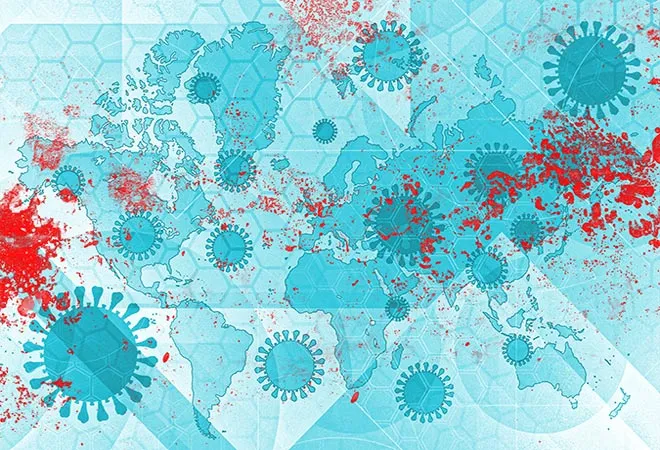The last global crisis was China’s coming-out party. In the years after the 2008 crash, its massive stimulus became the primary engine of global growth. Its stature rose alongside that of new multilateral groupings such as the G-20. And it developed an arsenal of arguments against the liberal, market-driven, economic and political order that the West had long promoted.
At least, that’s how many leaders in Beijing saw things. So, it isn’t surprising that those leaders are now looking to turn this new crisis to advantage as well.
Their task will be much harder than in 2008—and not only because many people across the world blame the Chinese government’s initial suppression of news about the coronavirus for its rapid spread. Back then, China could point to Western countries and say: They broke global finance. This time, Chinese leaders will have to show that they themselves are capable of fixing what’s broken. They will have to make a positive argument for global leadership.
Simply taking care of things at home won’t be enough anymore. After the last crisis, China’s 4 trillion yuan stimulus spurred demand and lifted commodity prices to new highs globally, keeping dozens of less-developed countries afloat. Stimulus-guzzling Chinese companies wandered the world investing in commodity-rich economies. Today, China has far less money to throw about. According to Bloomberg Economics, “relative to past excesses” during the last crisis, we should “expect China to take a more measured approach.”
Worse, those stimulus-fuelled shopping binges have led to an awkward hangover: China is now a huge and often hidden creditor in some of the world’s most indebted countries, many of which are being forced by the pandemic to choose “between death and default.”
This hampers global efforts to help such nations. The International Monetary Fund and the World Bank want creditors to suspend their debt payments temporarily; so do the African Union’s finance ministers. Outright debt relief, however, is complicated by fear that any payments would in fact bail out Chinese lenders, or protect the revenues of Chinese state-controlled investors in those economies. Last year, U.S. Secretary of State Mike Pompeo complained that any IMF package for Pakistan should not “go to bail out Chinese bondholders or China itself.”
In some ways, this is a far deeper crisis for emerging markets than 2008. The scale of capital flight is sobering—$83 billion in March, according to the Institute for International Finance. This comes at a time when, the IIF says, emerging markets’ overall debt to GDP ratio is at “a fresh high of 220% of GDP, up from 147% in 2007.” As my colleague Marcus Ashworth warns, we’re teetering on the edge of the worst EM crisis in history.
This is when the developing countries that Beijing has spent years wooing will learn whether China can act like a true global leader. Sending a planeload or two of masks won’t be enough.
Will China bail out stressed, debt-ridden countries across the developing world? Will it buy their bonds and forgive their debt? Will it ask its coddled state-owned companies to take haircuts, and will it protect the global supply chains for medicines, protective gear and pharmaceuticals? Will it provide loan guarantees in the billions, allowing emerging-world companies to shift to manufacturing ventilators, masks and sanitizers? If not, then the developing world will have its answer.
Western banks and multilateral institutions have yet to respond at scale to the growing crisis in emerging nations. But there’s still a chance those institutions will meet the moment as they should. The World Bank has already approved $1.9 billion in emergency lending, with $1 billion going to India’s healthcare sector alone. China’s challenger, the Asian Infrastructure Investment Bank? Well, it’s arranged its first post-coronavirus loan—$355 million for public health infrastructure in Beijing and Chongqing. That seems a pretty poor opening bid for an aspiring global hegemon.
The developing world might well have been willing to overlook the Chinese government’s early bungling of the Covid-19 pandemic. It might have ignored China’s clumsy efforts to rewrite the narrative of its virus response and to promote conspiracy theories about the pandemic’s origins. But it would have to be given a genuine reason to do so. So far, China’s leaders have offered little more than platitudes and propaganda.
This commentary originally appeared in Bloomberg.
The views expressed above belong to the author(s). ORF research and analyses now available on Telegram! Click here to access our curated content — blogs, longforms and interviews.




 PREV
PREV


